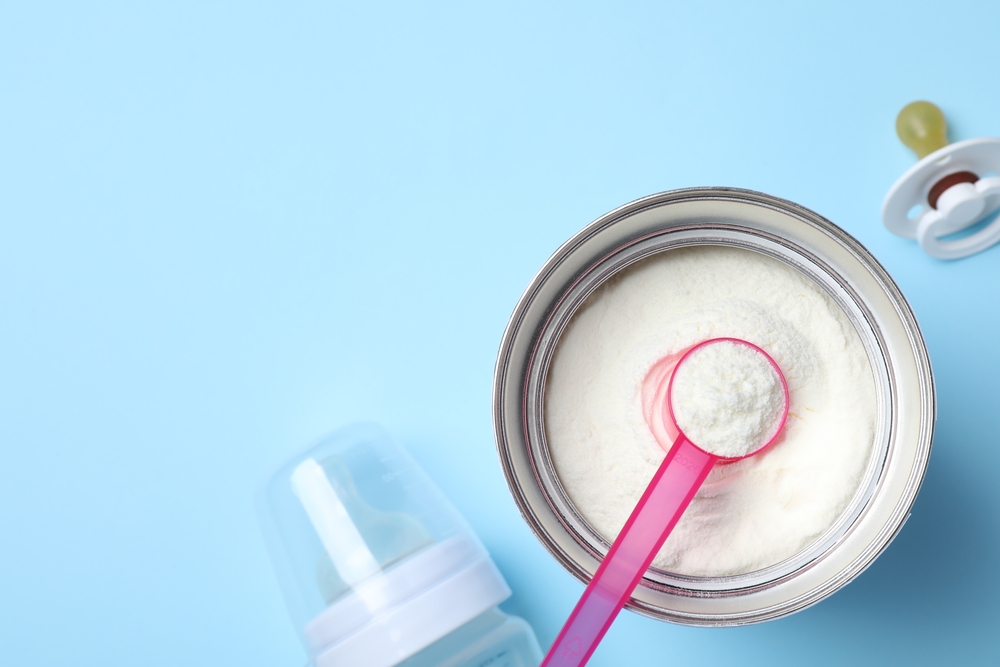Necrotizing enterocolitis (NEC) is a severe gastrointestinal disease that primarily affects premature infants. It is a devastating condition that can lead to long-term health complications and, in some cases, even death. Recent research has identified a concerning link between certain baby formula products and an increased risk of NEC in infants. In this article, we will delve into what NEC is, what causes it, and which baby formula brands have been implicated in reports of NEC.
What is Necrotizing Enterocolitis (NEC)?
Necrotizing enterocolitis is a gastrointestinal disease characterized by inflammation and tissue death in the intestines. It primarily affects premature infants, particularly those born before the 37th week of pregnancy. NEC can cause perforations in the intestines, leading to the leakage of harmful bacteria and potentially fatal infections. The symptoms of NEC can vary, but they often include abdominal distention, feeding intolerance, bloody stools, lethargy, and changes in heart rate and breathing. Early diagnosis and treatment are crucial in managing NEC and improving outcomes for affected infants.
What Causes Necrotizing Enterocolitis?
While the exact cause of NEC is not fully understood, several risk factors have been identified. One significant risk factor is feeding cow’s milk-based formula to premature infants. Research studies have shown a higher incidence of NEC in infants fed cow’s milk-based formulas compared to those fed human breast milk or breast milk-based formulas. Other factors that may contribute to the development of NEC include insufficient blood flow to the intestines after birth, underdeveloped intestines, intestinal injury, viral or bacterial infections, and blood transfusions. It is important to note that NEC itself is not contagious.
Baby Formula Brands Implicated in NEC Reports
Two prominent baby formula brands, Similac (manufactured by Abbott) and Enfamil (manufactured by Mead Johnson), have been implicated in reports of necrotizing enterocolitis. These formulas, which are made from cow’s milk, have been linked to serious gastrointestinal problems and death in premature infants due to NEC.
Research Linking Baby Formula Products to NEC
Several research studies have established a link between baby formula and necrotizing enterocolitis. These studies consistently indicate a higher incidence of NEC in preterm infants who are fed cow’s milk-based infant formulas compared to those who receive human milk. According to one article published in Frontiers in Pediatrics in December 2018, “Preterm infants who receive human milk instead of formula are 6- to 10-times less likely to develop necrotizing enterocolitis (NEC), one of the most common and devastating intestinal disorders that affects 5–10% of all very-low-birth-weight infants.”
Feeding practices play a crucial role in modifying the risk of NEC, and research suggests that the absence of certain components in infant formula, such as human milk oligosaccharides (HMOs), may contribute to the increased risk of NEC associated with formula feeding. HMOs, abundantly present in human milk, are believed to have beneficial effects in reducing the occurrence of NEC.
Needless to say, necrotizing enterocolitis is a complex condition with limited treatment options, and it poses a significant threat to very-low-birth-weight infants, who may suffer serious health problems or possibly even death as a result of the disease. It is crucial for parents, caregivers, and neonatal intensive care unit (NICU) staff to be aware of the potential risks associated with these baby formula brands, especially when caring for a premature infant.
Legal Implications and Lawsuits
The link between certain baby formula brands and NEC has prompted legal action by affected families. Lawsuits have been filed against Abbott Laboratories (manufacturer of Similac) and Mead Johnson (manufacturer of Enfamil) alleging that these companies failed to adequately warn consumers about the risk of necrotizing enterocolitis associated with their products.
Parents whose premature infants have developed NEC after being fed cow’s milk-based formula products may be eligible to file an NEC baby formula lawsuit. These lawsuits seek to hold the manufacturers accountable for the harm caused to infants and may provide compensation for medical expenses, ongoing care, and other damages.
The Importance of Breast Milk and Alternative Options
Breast milk is widely recognized as the safest and most nutritious source of nutrition for infants, especially those at risk of NEC. The Centers for Disease Control and Prevention (CDC) recommends exclusive breastfeeding for the first six months after birth. If breastfeeding is not possible, alternative options should be considered, such as donor breast milk or breast milk-based formulas. Human milk fortifiers and other specialized products may also be available to meet the nutritional needs of premature infants. It is crucial for healthcare providers to educate parents about the potential risks associated with cow’s milk-based formulas and to explore alternative feeding options whenever possible.
Seeking Compensation for NEC Injuries and Wrongful Death
Necrotizing enterocolitis is a devastating disease that can put premature infants at risk for long-lasting health problems or possibly even death. Recent research has shed light on the link between certain cow’s milk-based baby formula brands and an increased risk of NEC in preterm babies. In light of this research, parents of premature infants should be educated about the potential risks associated with cow’s milk-based formulas, such as Similac and Enfamil. For those parents with children who have developed NEC after being fed formula, a baby formula NEC lawsuit may provide a path to compensation.
Baby Formula NEC Lawsuit Information
Expert Review of Clinical Immunology, Evidence based feeding strategies before and after the development of necrotizing enterocolitis
Frontiers in Pediatrics, Human Milk Oligosaccharides in the Prevention of Necrotizing Enterocolitis: A Journey From in vitro and in vivo Models to Mother-Infant Cohort Studies

